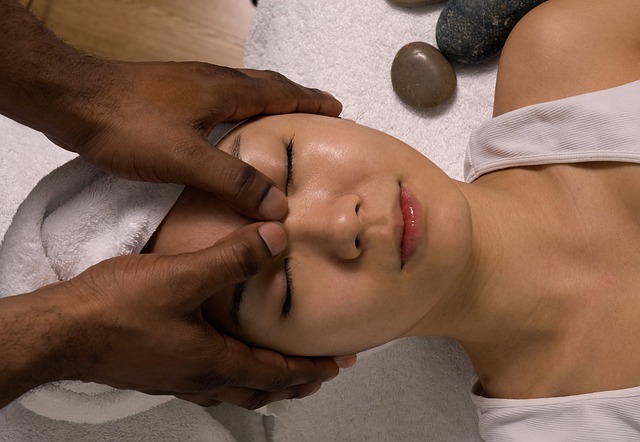Holistic wellness therapy is a comprehensive approach that combines mindfulness therapy, cognitive-behavioral therapy (CBT), art therapy for healing, yoga therapy, and meditation for holistic wellness to effectively address the complex issues of stress and anxiety. This integrated therapy facilitates emotional healing therapy by helping individuals recognize and alter negative thought patterns through CBT, express and process emotions non-verbally with art therapy, and cultivate physical and mental calm with yoga and meditation. Somatic therapy further supports this holistic approach by emphasizing the importance of the body in emotional well-being, guiding safe processing of emotions. Together, these therapies provide a balanced and effective treatment for achieving overall mental health and emotional healing, aligning with the principles of integrative wellness therapy and promoting lasting well-being.
Navigating the complex terrain of stress and anxiety can be a challenging journey. This article delves into a suite of therapeutic practices designed to foster holistic wellness and offer effective strategies for managing these prevalent conditions. We will explore a range of approaches, from the grounding practice of mindfulness therapy to the transformative potential of art therapy for healing. Cognitive-behavioral therapy stands as a cornerstone in altering detrimental thought patterns, while integrative wellness therapy combines various modalities to provide comprehensive relief. Yoga therapy and meditation for holistic wellness are highlighted for their roles in harmonizing body and mind, and somatic therapy emerges as a powerful ally in emotional healing. Each section of this article offers insights into how these therapy for holistic wellness practices can be instrumental in your quest for tranquility and resilience.
- Embracing Holistic Wellness Through Therapy: A Comprehensive Approach to Stress and Anxiety Management
- The Art of Mindfulness: Cultivating Inner Peace with Mindfulness Therapy Techniques
- Cognitive-Behavioral Therapy: Rewiring Thought Patterns for Emotional Resilience
- Integrative Wellness Therapy: Combining Modalities for Effective Stress and Anxiety Relief
Embracing Holistic Wellness Through Therapy: A Comprehensive Approach to Stress and Anxiety Management

Holistic wellness through therapy encompasses a spectrum of practices designed to address the multifaceted nature of stress and anxiety. Therapy for holistic wellness often incorporates mindfulness therapy, which encourages individuals to develop a heightened awareness of the present moment, fostering a state of calm and clarity. This mindful awareness can be cultivated through various therapeutic techniques, including cognitive-behavioral therapy, which helps individuals recognize and reframe negative thought patterns that contribute to stress and anxiety.
Integrative wellness therapy further expands this holistic approach by combining traditional psychological practices with complementary therapies such as art therapy for healing. Art therapy allows patients to express emotions non-verbally, providing an alternative avenue for emotional release and cognitive processing. Additionally, yoga therapy and meditation for holistic wellness offer physical and mental exercises that can reduce stress hormones and promote a sense of inner peace. These practices also include somatic therapy, which focuses on the connection between the mind and body, facilitating emotional healing therapy by helping individuals to experience and process their emotions in a safe and controlled environment. By integrating these diverse therapeutic modalities, individuals can embark on a comprehensive journey towards addressing stress and anxiety, ultimately achieving a more balanced and harmonious state of being.
The Art of Mindfulness: Cultivating Inner Peace with Mindfulness Therapy Techniques

Embarking on a journey toward holistic wellness often necessitates innovative therapeutic approaches that address both mental and physical health. Mindfulness therapy, a practice that emphasizes present-moment awareness, emerges as a pivotal component within integrative wellness therapy. It invites individuals to observe their thoughts and sensations without judgment, fostering a profound sense of inner peace and emotional balance. This modality, rooted in cognitive-behavioral therapy principles, helps individuals recognize and alter patterns of thought that contribute to stress and anxiety, thereby promoting healthier cognitive frameworks.
Incorporating mindfulness into daily life can be as simple as engaging in meditation for holistic wellness, a practice that has been shown to significantly reduce symptoms of anxiety and depression. Additionally, yoga therapy complements mindfulness by synchronizing physical movements with breath and intention, creating a powerful tool for emotional healing therapy. The somatic aspect of yoga allows for the release of pent-up tension, enhancing the body’s innate capacity to heal itself. Art therapy for healing further enriches this tapestry of therapeutic practices, offering a nonverbal outlet for expression and processing complex emotions, leading to profound personal insights and transformation. Together, these mindfulness therapy techniques constitute a multifaceted approach to cultivating a life characterized by peace, resilience, and well-being.
Cognitive-Behavioral Therapy: Rewiring Thought Patterns for Emotional Resilience

Cognitive-Behavioral Therapy (CBT) stands as a cornerstone in therapeutic practices for holistic wellness, offering a structured approach to emotional resilience. By identifying and altering negative thought patterns, individuals can rewire their cognitive processes, leading to more positive emotional responses. This transformative aspect of CBT is not merely about addressing the symptoms but rather tackling the root causes of stress and anxiety. Integrative wellness therapy often incorporates CBT alongside other modalities such as mindfulness therapy, which teaches individuals to remain present and aware, reducing the impact of intrusive thoughts and promoting a state of calm. Art therapy for healing complements these practices by providing a non-verbal outlet for expression, allowing suppressed emotions and thoughts to surface and be processed in a safe and supportive environment.
Yoga therapy, with its focus on physical postures, breath control, and meditation, further supports emotional healing therapy by fostering a deep connection between the mind and body. This holistic approach encourages individuals to listen to their bodies’ signals, enhancing self-awareness and self-regulation. Meditation for holistic wellness is particularly effective in this regard, as it cultivates a state of relaxation and inner peace that can counteract the physiological effects of stress and anxiety. Somatic therapy also plays a crucial role by helping individuals to understand and release held tensions, traumas, and emotional blockages through mindful movement and attention to bodily sensations. Through these integrated therapeutic practices, individuals can achieve a more balanced state of mental health, leading to improved overall well-being.
Integrative Wellness Therapy: Combining Modalities for Effective Stress and Anxiety Relief

Integrative Wellness Therapy emerges as a multifaceted approach to stress and anxiety management, offering a holistic solution that transcends traditional treatment modalities. It combines techniques from various therapeutic practices such as mindfulness therapy, cognitive-behavioral therapy, art therapy for healing, yoga therapy, and meditation for holistic wellness. This synergy enables individuals to address the psychological, emotional, and physical aspects of their experiences with stress and anxiety. For instance, cognitive-behavioral therapy assists in identifying and altering negative thought patterns, while art therapy provides a non-verbal outlet for emotional expression and healing. Yoga therapy integrates physical poses, breathwork, and mindfulness to cultivate a sense of calm and improve the body’s resilience. Incorporating meditation for holistic wellness offers clients a tool to center their thoughts and promote mental clarity and emotional balance. Together, these therapies within integrative wellness therapy offer a comprehensive approach that respects each person’s unique path to emotional healing and overall wellbeing.
navigating the complex landscape of stress and anxiety can be a daunting journey, yet through the application of therapeutic practices tailored to individual needs, one can embark on a path toward holistic wellness. This article has explored various therapeutic approaches, including the transformative power of mindfulness therapy in cultivating inner peace, the structured methodology of cognitive-behavioral therapy for rewiring thought patterns, and the comprehensive integration of modalities within integrative wellness therapy. Additionally, the role of art and yoga therapies, alongside meditation practices, as tools for emotional healing has been highlighted. Each approach offers a unique avenue for personal growth and emotional resilience, contributing to a more balanced and fulfilling life. By embracing these therapeutic strategies, individuals can effectively manage stress and anxiety, fostering a journey of healing and self-discovery.
